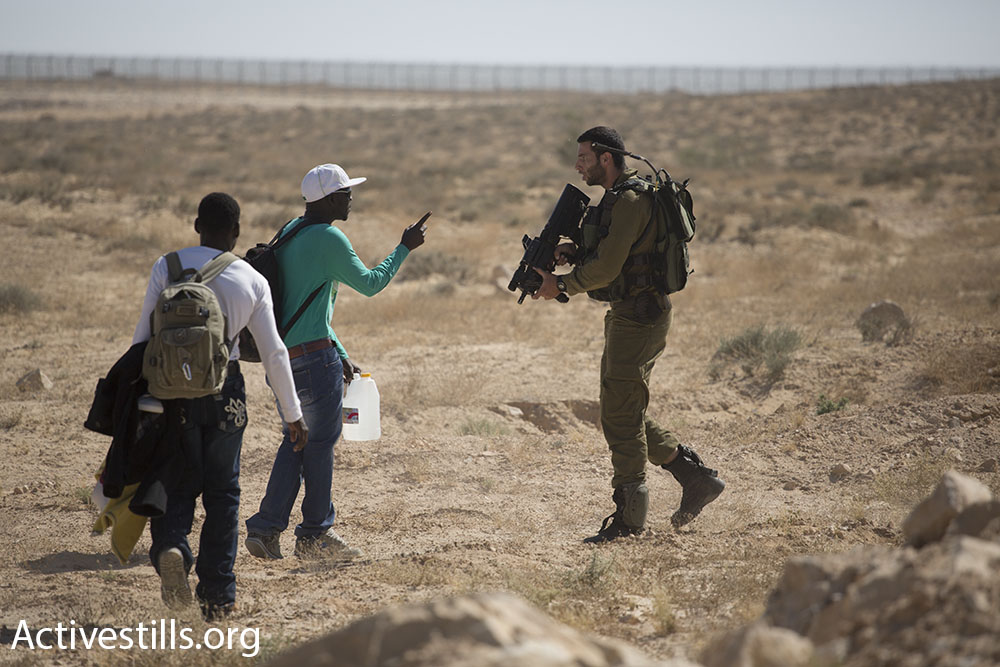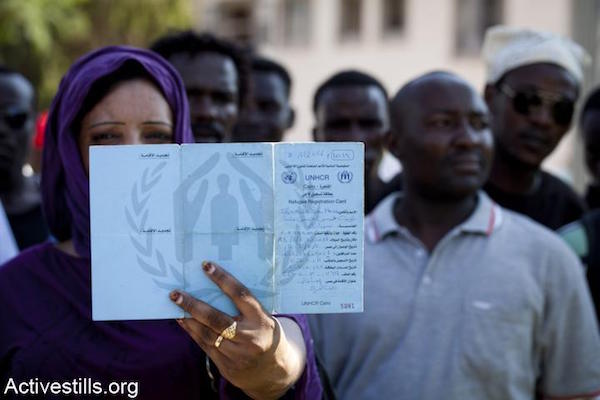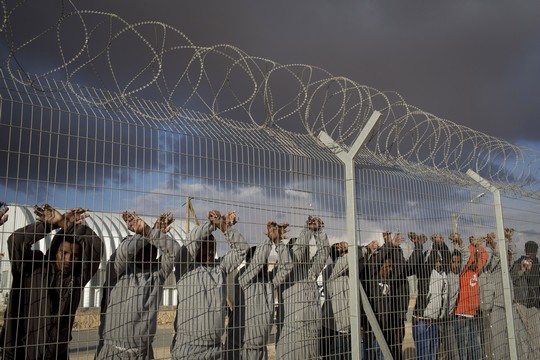It’s been exactly 10 years since I crossed the border into Israel. I’ve been imprisoned, I’ve become ill, I was forced to renew my visa 62 times, and now I’m back in a detention facility — Holot. Is seeking asylum a crime?
By Hassan Rahima

This Sunday marked 10 years since I applied for refugee status in Israel. I’ve been waiting since December 6, 2005, the day I crossed the border from Egypt. My journey into the unknown continues.
I was 17 years old when my village, Smasm, in the South Kordofan province of Sudan’s Nuba Mountains, was attacked. Most members of my family were killed in that horrible attack, which was the beginning of the suffering I have endured until today. I was arrested.
I faced various types of torture, including beatings and humiliation at the hands of the Sudanese regime. I realized that my life was in danger, so I decided to escape from the scourge of torture and search for safety outside my country.
I first arrived in Egypt. There, I saw asylum seekers sleeping on the ground and staging a strike in Cairo’s Mustafa Mahmoud Square, demanding better services from the United Nations High Commissioner for Refugees (UNHCR). I saw Egyptian security forces assault, beat, and arrest asylum seekers and deport them back to Sudan. The two countries were close allies in security matters, and death was almost certain for anyone who was returned. UNHCR closed its doors to asylum seekers in Cairo. Egyptian security forces eventually killed 20 of them. Deeply fearing being arrested and deported back to Sudan, I decided to leave Egypt and head to Israel.
I was so scared and nervous! At the border, I asked myself several questions. What will happen to me if I am arrested by the Egyptian border guards? If I were lucky enough, I would be able to cross to the Israeli side of the border. But what will happen when the Israeli border guards realize somebody has crossed illegally into Israel? If had been a way for me to cross legally, I would have taken it. But there wasn’t.

In the end, I made it. I crossed the border illegally, but I believe I was justified in doing so. I only had two equally risky options at the time: the first was to step back into to the furnace behind me, which meant possibly being killed at any moment as I walked back to Egypt. The second was to cross the border into the unknown. It was the biggest dilemma I had ever faced.
I chose the unknown. I crossed the Israeli border at 9 p.m on December 6, 2005. The Israeli army welcomed me far differently than what I had expected and treated me respectfully. I salute them for that. However, I was transferred to Ktzi’ot Prison, where I spent 45 days with Palestinian prisoners. I was interrogated by the prisoners who accused me of being a spy for the Jews and an enemy of Islam. They attacked, beat, and assaulted me.
I realized that my life was once again in danger. I told the prison authorities that I had been beaten and isolated by the other prisoners. They transferred me to another prison for three weeks, and then to Maasiyahu Prison in the center of Israel. I lived there for 11 months and 15 days. Maasiyahu not like any of the previous prisons. I was infected with disease there from which I still have not recovered. Due to the harsh conditions, I passed out inside the prison one day.
On December 21, 2006, I was released on the conditions that I: live at Kibbutz Yad Hana and not leave the kibbutz; not speak with the media; do agricultural work on the Kibbutz.
Working in the fields was extremely difficult and impossible to endure. And yet I did it for eight long months, at which point I was told I could live anywhere in Israel. The authorities gave me a letter certifying as much. I’ve held onto that letter to this day. They told me to pay NIS 1,000 ($250 USD) at Ben-Gurion Airport, the receipt for which I’ve kept to this day.
Later, the UNHCR office in Tel Aviv gave me a six-month renewable temporary protection. And despite the UN document, I still had to sign in at an Israeli immigration office three times a week for the first six months. A year and a half later, the immigration authorities replaced the UNHCR card with a “conditional release visa,” which has to be renewed every two months.

Everything was moving back in time. Instead of receiving temporary protection from the UNHCR, in order to maintain my status in Israel I had to go to an Israeli Interior Ministry office every two months. I renewed the visa a total of 62 times.
The Israeli Interior Ministry revoked my visa on May 17, 2014, at which point they summonsed me to appear at the Holot detention center, where Israel holds African asylum seekers.
Probably because my health situation was unstable, the summons was canceled. But a year later, I was summonsed again to Holot, just across the road from Ktzi’ot Prison, where I was first held in 2005. My health was still very bad and all medical tests indicated I was not suitable to be put in Holot, which would have a detrimental effect on my body. But the immigration authorities did not care. They did not care if I was going to die or not.

I asked for asylum on the first day I arrived in Israel. But no one cared about my request at the time. I was told to fill out the refugee status determination form. I applied, but no answer ever came — for a decade!
I cannot fathom what crime I committed for which I was sent back to prison? Is applying for asylum a crime for which I need to be punished for 10 years? Longer? And if it is a crime, then why I was released Maasiyahu Prison in the first place? Is there any humanity left?
There is, it seems, still a slight piece of humanity left. Many people have stood beside me and helped me for the past 10 years and I want to thank them for everything they have done for me. I also forgive all the people who have abused me. Ultimately, their abuse is inflicted on themselves. It does not and cannot take away my humanity.
This article also appears in Hebrew on Local Call. Read it here.

